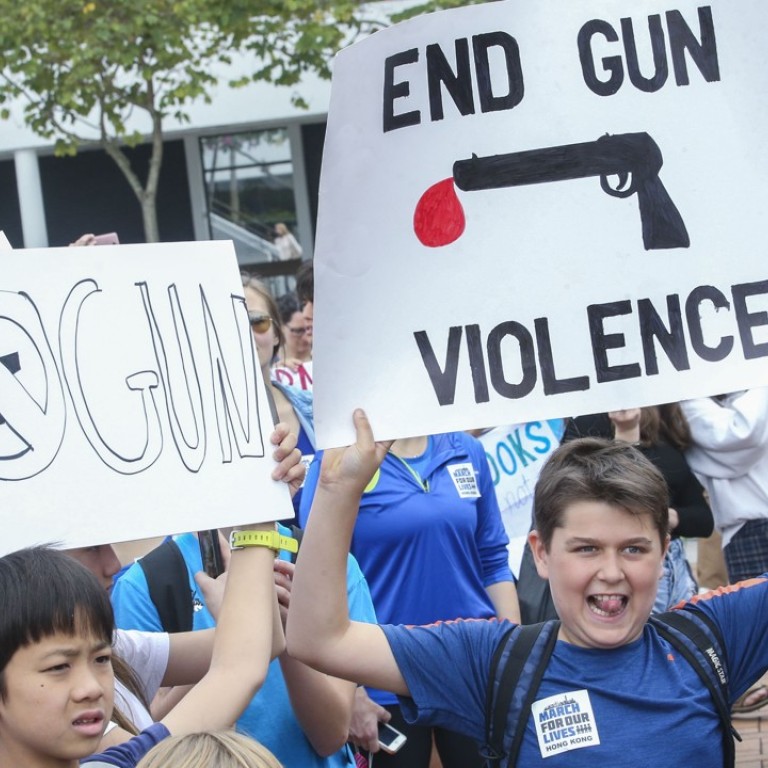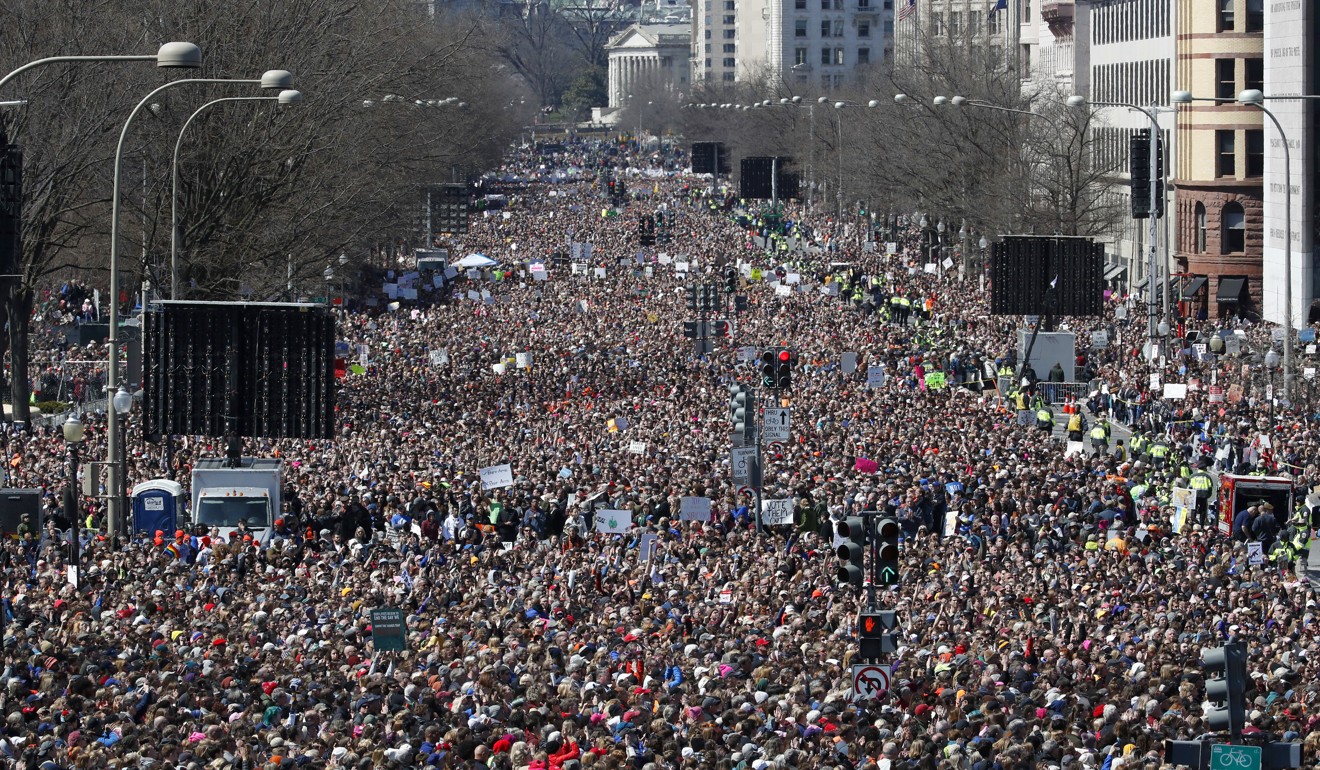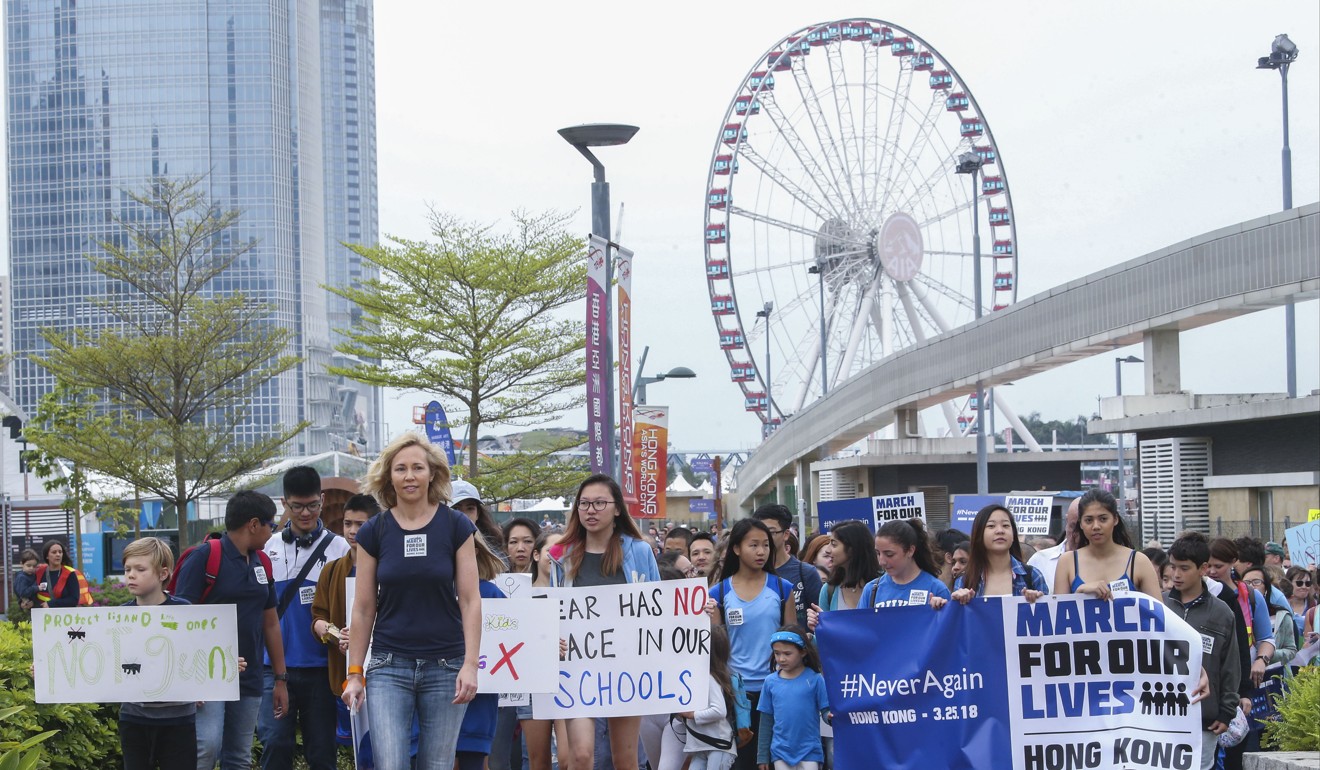
Hundreds march in Hong Kong to support student-led US gun protests
Organisers estimate turnout of up to 800 for Hong Kong rally as ‘March for Our Lives’ protests sweep across US and cities around the world demanding end to gun violence
More than 800 “March for Our Lives” rallies were expected to take place across the US and cities including London, Sydney and Tokyo over the weekend demanding US lawmakers and officials put a stop to gun violence.
Youth power: hundreds of thousands of students march in US cities to demand gun control

Many called for tighter gun control in the US including stricter background checks, higher legal age limits and bans on “weapons of war” assault rifles. Marching from the Central Piers to nearby City Hall, they wore orange ribbons – a symbol of the movement – and held up placards with messages such as “Enough is enough” and “Protect kids not guns”.
“The fact that we have to fight to ban an AK-47 assault rifle … makes me sick,” said co-organiser Marney Schaumann, an American expatriate. “These are weapons of war with no other purpose or function and should not be in civilian hands.”
For six powerful minutes, Emma Gonzalez’s face said what America needed to know
Schaumann, a housewife and part-time research assistant, used to live less than a mile (1.6 kilometres) from the Parkland school and was invited by a friend in her old neighbourhood to organise the Hong Kong rally. “What we are asking for is not extreme and not irrational.”
Sarah Baur, a substitute teacher and tutor from Michigan who has been in Hong Kong for a decade, attended the march with her dog Murray, to express support for the movement.
Baur, who comes from a family of hunters, said she was not opposed to the second amendment – which gives US citizens the right to bear arms – but felt it made no sense for gun ownership to be “easier than getting a driver’s licence”.
“The amount of gun violence in the US is disgusting,” she said. “I know friends from Hong Kong who are planning trips to the US but are holding off because they fear gun violence. It makes me so sad that they are afraid to travel to my country because they don’t feel safe.”
Hong Kong student Luna Cinar, 16, attended with her parents Veerla and Karazona. The family moved to the city from New York four years ago.
“I am so lucky to live somewhere I don’t need to be afraid of going to school,” she said. “I have friends back in the US whose schools get gun threats daily and it’s scary for them. Their lives are in danger in a place where they should be learning. This is not OK.”

Though gun violence is almost non-existent in Hong Kong – firearms ownership is tightly controlled and limited to law enforcement – the marchers were not all American.
Alvin Chan, a Hong Kong high school pupil who is considering studying political science in the US for university, attended the march with his parents.
“I don’t want my life to be endangered and my parents to be concerned,” he said. “More young people need to come out, voice out their opinions and tell politicians that it is time to act.”

